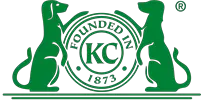Snorkie History
The Snorkie is a toy-sized breed of hairless cat, developed through the selective breeding of Devon Rex and Munchkin cats. The Snorkie is a type of hairless cat that is also known as a Sphynx or Xerxes. The Snorkie is a spontaneous mutation of the Devon Rex, a genetic mutation that results in the gene for normal a cat’s coat to be deleted. The gene that is responsible for the production of a kitten’s hair, which normally produces the protein called keratin, is mutated in the Devon Rex. This causes the kitten to be born completely bald, or with an extremely short and fine coat of fur. The mutations in both the genes for hair and pigmentation make the kittens look as though they are wearing human clothing; this is why the cats were originally named “Socks”. These intact female cats are then mated with males that are either bald or sparsely-bearded. The offspring then inherit the gene mutations for having no or little hair.
Snorkie Physical Characteristics
The Snoorie is a toy-sized crossbreed that is typically 10 to 15 inches in height at the shoulders and weighs 5 to 10 pounds. They have a small head with a rounded skull, and round, large eyes. Their nose is pink, and their ears are medium sized and set high on the head. Their legs are short and shaped like a leg of lamb. They have a soft coat that is usually white with colored patches. They are known for their friendly, playful personalities.
Eye Colors
Unknown
Nose Colors
Brown, Black, Gray
Coat Colors
Short, Medium, Long
Height Range
Male Height Range: 5 – 12 inches
Female Height Range: 4 – 11 inches
Weight Range
Male Weight Range: 8 – 12 lbs
Female Weight Range: 7 – 11 lbs
Snorkie Health
Description of breed health.
Lifespan
12-15 yrs
Snorkie Health Concerns
Cataracts, Diabetes, Pancreatitis, Keratoconjunctivitis Sicca, Allergies, Bladder Stones
Snorkie Temperament and Behaviour
The Snorkie is a playful and high energy breed of dog. They are friendly and excitable, but can become timid or nervous in new situations. They are protective of their families and will bark to alert them of danger. They are best with older children who understand that they need space.
Snorkie Activity Requirements
The Snorkie is a hybrid mix between a Siberian Husky and a Yorkshire Terrier. This cute and cuddly dog is a great companion, but they are sometimes considered high maintenance. Their small size can cause them to develop joint problems, so it’s important they have a regular exercise routine. While a Snorkie does not require as much physical exercise as a pure-bred Husky, they do still require regular walks. This can help to keep them at a healthy weight, but it’s important to monitor their food intake as well. A healthy diet and plenty of regular exercise will help to prevent your Snorkie from developing any joint issues. The Snorkie is active and energetic, but they are small and fragile. It’s a good idea to start slow with any new puppy, so they don’t get overexerted. It’s best to stick to short, frequent walks until your puppy is old enough for longer outings. Once your Snorkie is a few years old, they should be ready for long walks and hikes. A home with a fenced-in backyard is ideal for a Snorkie. They are very active and need space to run around. A pet parent who likes to spend plenty of time outside with their puppy will be a perfect match for this fun-loving and high-energy hybrid.
Miles Per Day
5 miles
Activity Per Day
30 minutes
Daily Food
1 cups
Kennel Club Recognition

American Kennel Club
Not Recognized
Snorkie is part of the Unclassified group.
Visit the American Kennel Club website.

The Kennel Club
Not Recognized
Snorkie is part of the Unclassified group.
Visit the Kennel Club website.

Australian National Kennel Council
Not Recognized
Snorkie is part of the Unclassified group.
Visit the Australian National Kennel Council website.

Canadian Kennel Club
Not Recognized
Snorkie is part of the Unclassified group.
Visit the Canadian Kennel Club website.